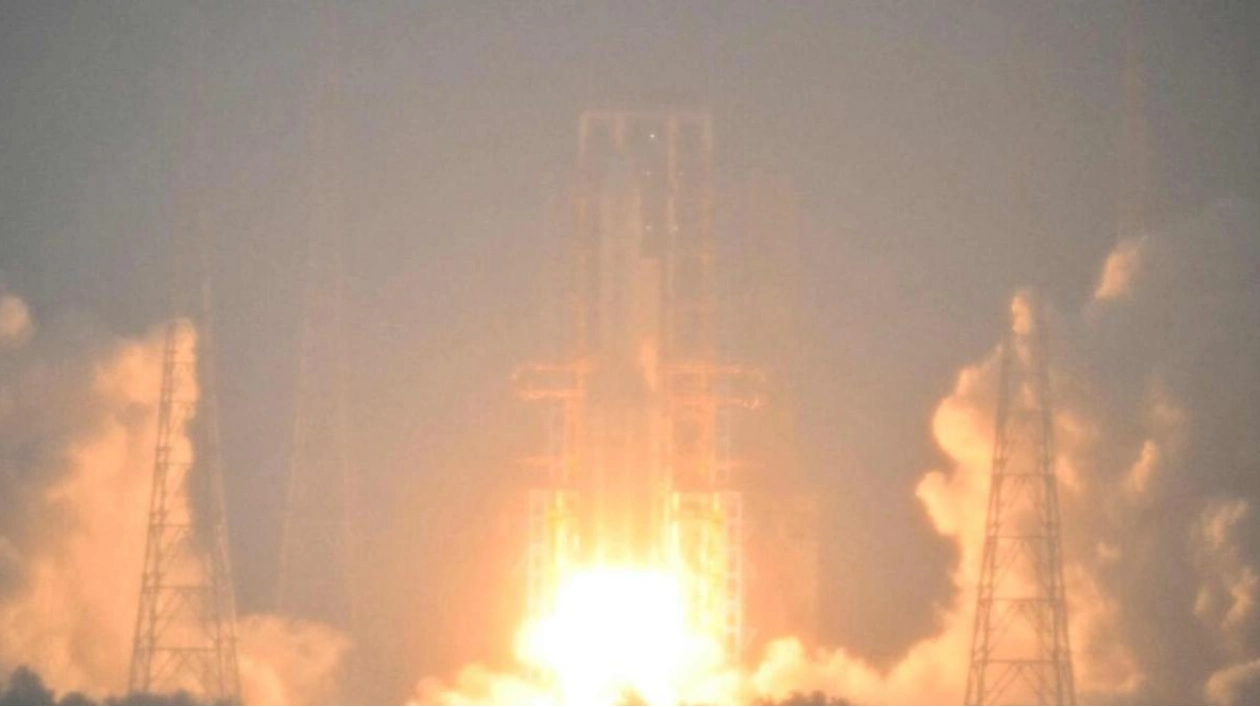A Long March 5 rocket, carrying the Chang'e-6 mission lunar probe, lifts off as it rains at the Wenchang Space Launch Centre in southern China's Hainan province on May 3 this year. AFP
China's state security ministry has warned that foreign spy intelligence agencies are attempting to steal secrets from the country's space programme as the arms race in space heats up, becoming a new "battlefield for military struggle". Protecting space security has become a crucial strategy for China's future survival and development, according to a post on the ministry's official Wechat account on Wednesday.
"In recent years, some Western countries have established space combat forces, demonstrated space action capabilities, and even viewed (China) as a major competitor in the space field," the ministry stated. Foreign spy intelligence agencies have also conducted remote sensing detection against China using high-precision satellites, aiming to observe and steal secrets from China from space.
While the ministry did not name any specific countries, it noted that some had "engaged in infiltration and stealing activities within China's aerospace sector". High-precision satellites have become a focal point in modern warfare, with their significance highlighted in Russia's war on Ukraine, where real-time and ultra-detailed images provide substantial advantages on the battlefield.
The competition for space resources is becoming increasingly intense, with space exploration facing a shortage of orbital and spectrum resources. Additionally, abandoned satellites and rocket debris increase the risk of collisions. China's lunar strategy includes its first astronaut landing around 2030, with Russia as a partner in the programme. In 2020, China conducted its first lunar sample return mission with Chang'e-5, retrieving samples from the moon's nearer side.
In June, China successfully landed an uncrewed spacecraft on the far side of the moon, overcoming a significant hurdle in its mission to retrieve the world's first rock and soil samples from the dark lunar hemisphere. China's space agency has set 2035 as the target date for establishing a "basic station" on the moon's south pole, with a moon-orbiting space station planned by 2045.
Source link: https://www.khaleejtimes.com






